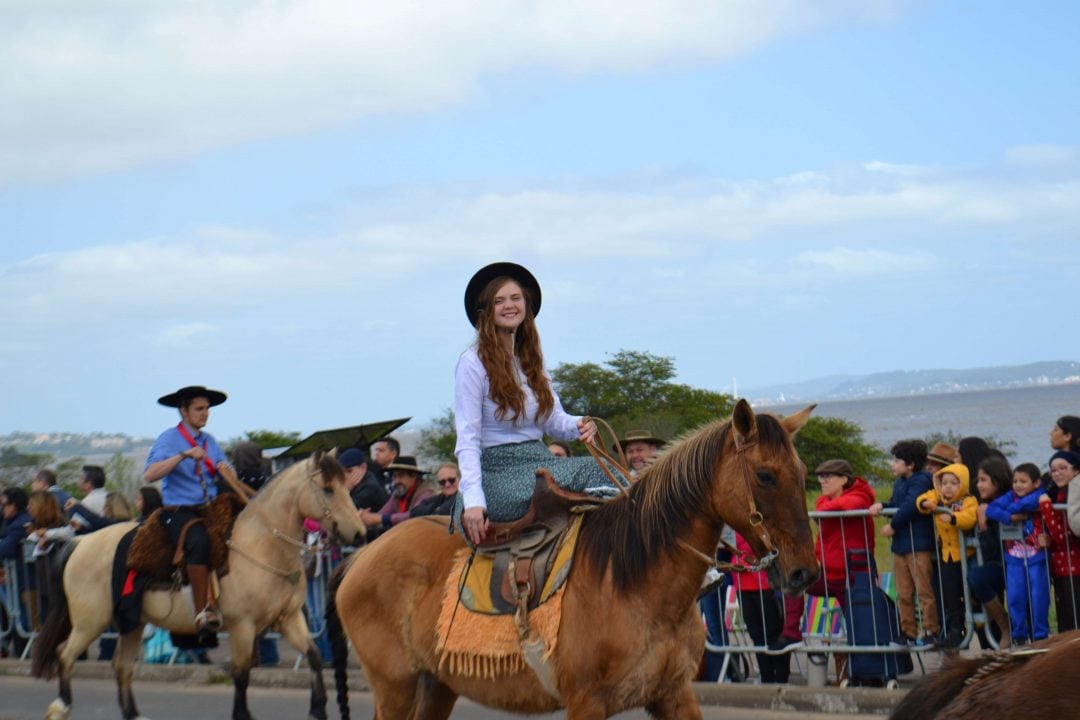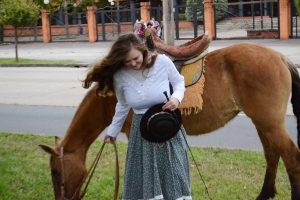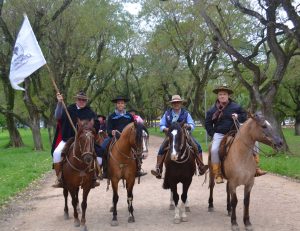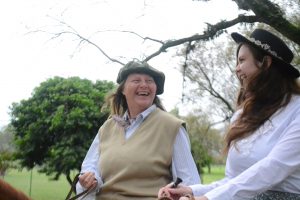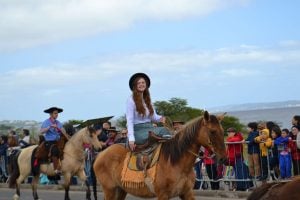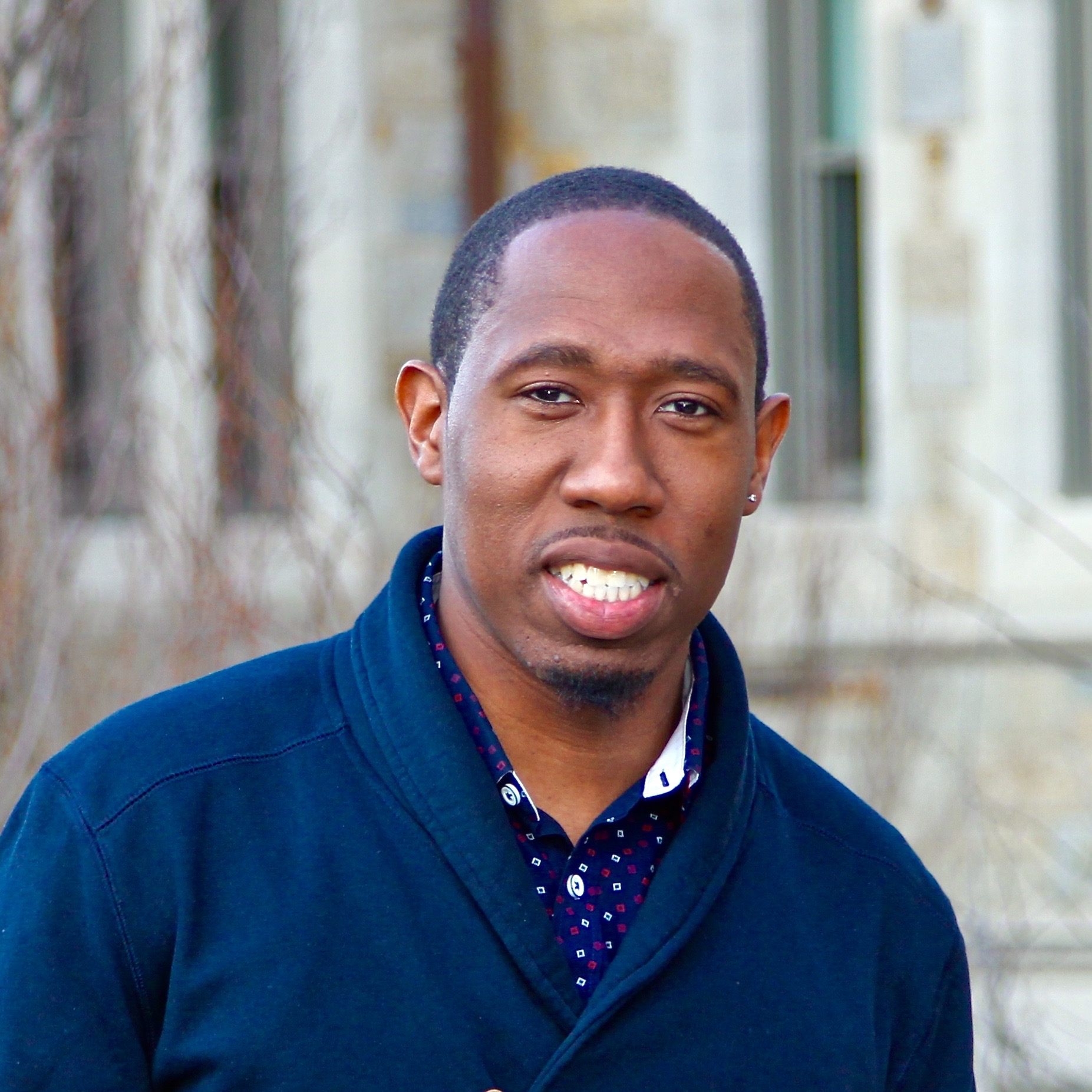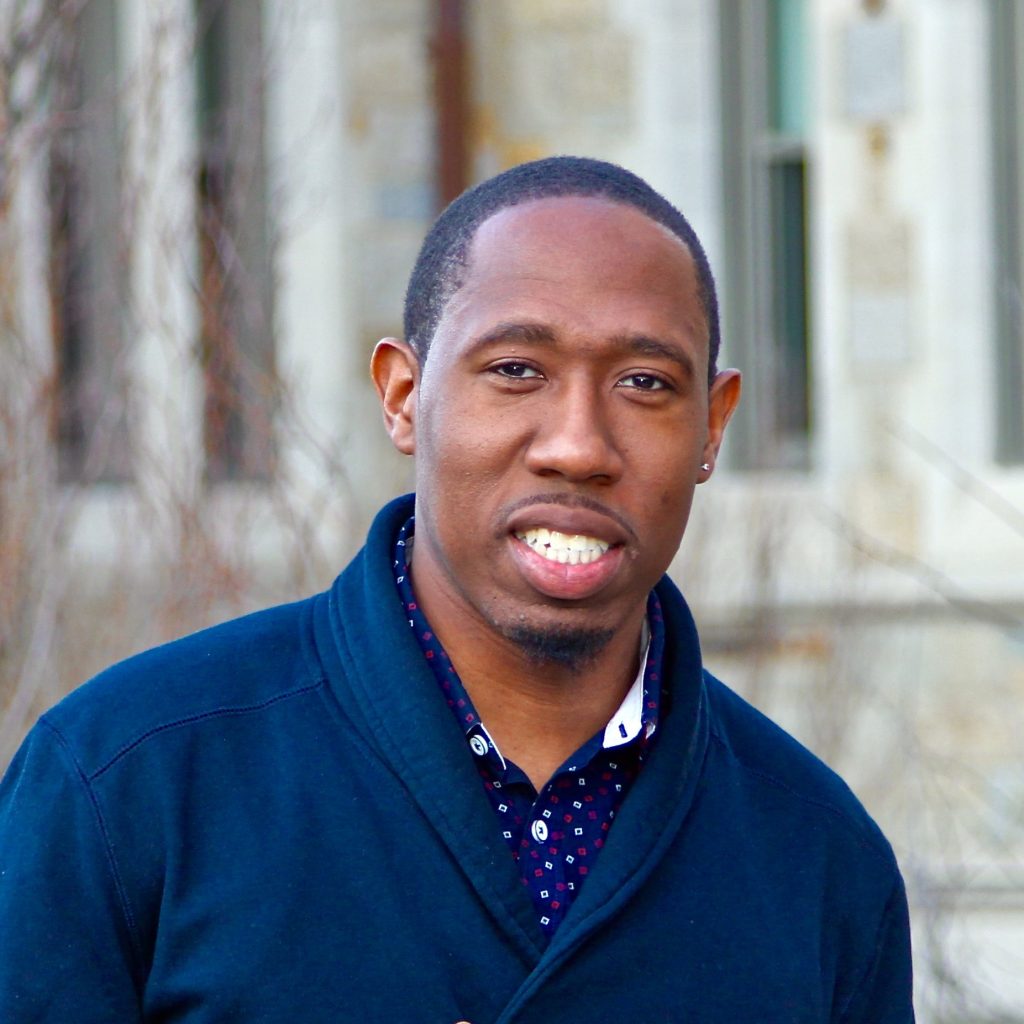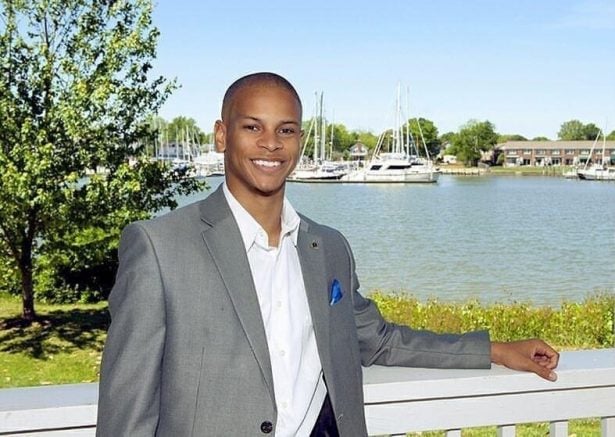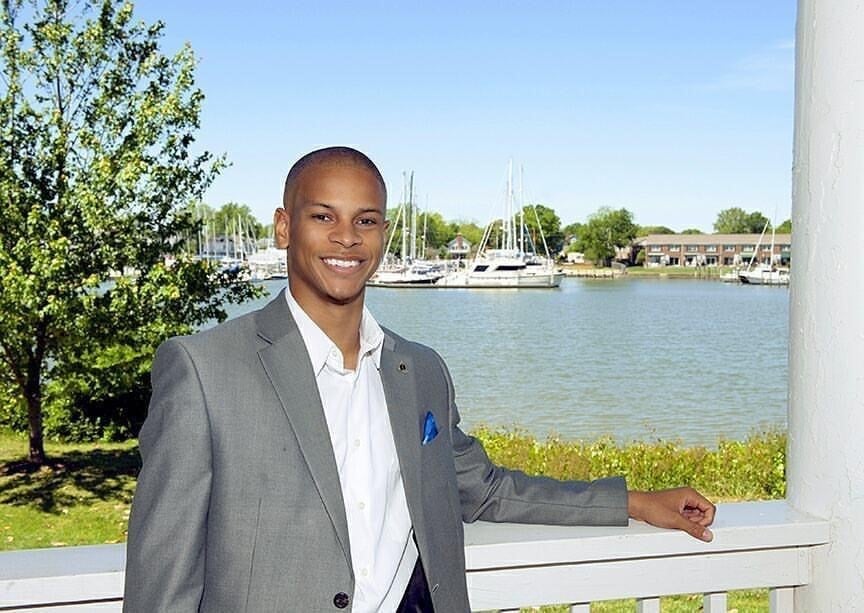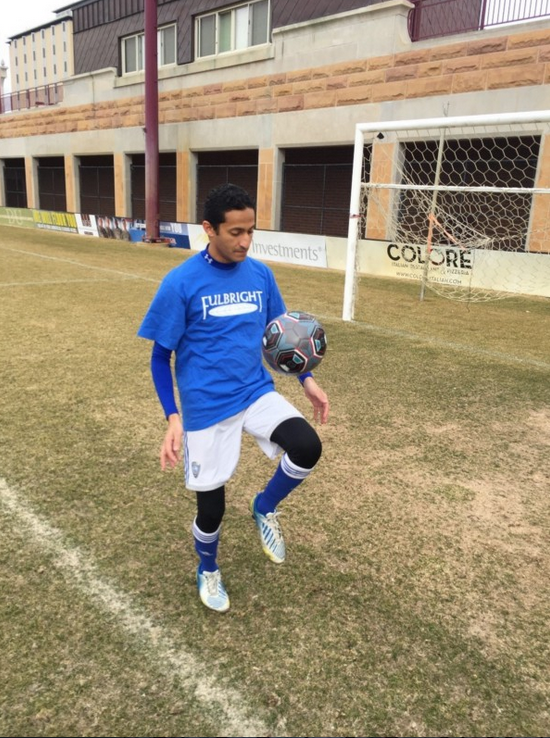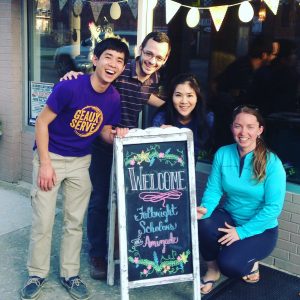In celebration of International Education Week 2019, 10 Fulbright Foreign Language Teaching Assistants will visit elementary, middle, and high schools in Kentucky, Nebraska, North Carolina, and Michigan. The visits will take place from November 18 to 21, and are sponsored by the U.S. Department of State’s Bureau of Educational and Cultural Affairs (ECA), in partnership with Reach the World.
The Fulbrighters will share their home countries’ culture with students and describe their Fulbright experiences. The visits, with a diverse group of participants and classrooms, allow American students to build first-hand global knowledge, and help increase mutual understanding between the people of the United States and other countries. The visits build on ECA and Reach the World’s virtual exchanges partnership, in which U.S. exchange students studying overseas through Fulbright and other ECA exchange programs “meet” students in American classrooms.
Follow our visits to U.S. classrooms this week by using and following #Fulbright on social media.
Meet the Fulbright participants:
El Housseine Abouazza
Fulbright Foreign Language Teaching Assistant from Morocco
Fayetteville State University
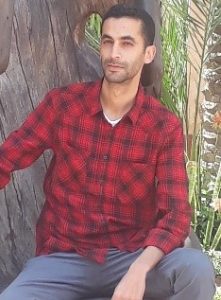
“My name’s Houcien Abouazza. I’m from Morocco, which means I’m African, and I’m 33 years old (my body insists that I look much younger, though!). I’ve been working as a high school English teacher for the past eight years. I enjoy my job immensely because I get the chance to work with thirsty young minds. I have a master’s in Translation Studies from Cadi Ayyad University in Morocco, and work as a translator between English and Arabic. I came to the United States in August 2019 on the Fulbright Foreign Student FLTA Program, and teach at Fayetteville State University in North Carolina. My focus is building a bridge between Americans and Moroccans through teaching Arabic and showcasing Moroccan culture with all its varied facets. Not only that, but the Americans I have met have been nothing but helpful in introducing me into their own culture, which has made me more conscious of my own. Programs like Fulbright help prevent the rise of global illiteracy.”
Raju Ahmmed
Fulbright Foreign Language Teaching Assistant from Bangladesh
University of Michigan
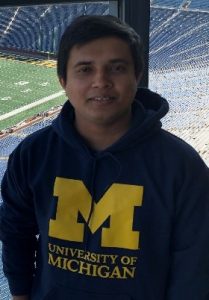
“Hello, I am Raju. I am a lecturer in English at Bangabandhu Sheikh Mujibur Rahman Maritime University in Bangladesh, where I teach communicative English courses to undergraduate students. My research interest is in developing second language skills, English for Specific Purpose (ESP) and Teaching English as a Foreign Language (TESOL). I graduated from the University of Dhaka in Bangladesh. Presently I work as a Fulbright Foreign Language Teaching Assistant at the University of Michigan, where I teach Bengali in the Department of Asian Languages and Cultures. I also assist in a seventh grade English class once a week at Scarlett Middle School. In my free time, I love cooking, meeting new people, and sharing my culture.”
Sarwa Azeez
Fulbright Foreign Student Program – MA Creative Writing, from Iraq
University of Nebraska-Lincoln
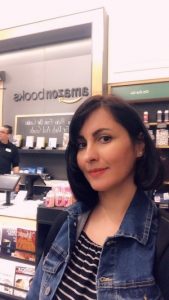
“Hi, I am Sarwa Azeez. I have completed a master’s in English Literature at Leicester University in the UK. My hometown is called Soran, which is a stunning mountainous town located in Iraqi Kurdistan. I have contributed to humanitarian work with refugee girls and children in my region. My main interests are reading and writing, especially writing poetry. I have published a poetry pamphlet called Remote. As a Fulbrighter, I am studying for my second master’s degree in Creative Writing at the University of Nebraska-Lincoln.”
Huda Hosson
Fulbright Foreign Student Program – MS in Electrical Engineering, from Libya
University of Nebraska-Lincoln

“My name is Huda, and my mission in life is to bring positive change to the world and to help humanity evolve and grow. I chose science and engineering to be my keys to doing so. I am currently researching different implementations of solar power systems to help lead the world to sustainability. I have experience as a primary school teacher and as a lab supervisor in college. I’ve been involved with different civil society organizations to help promote peace, empower women, and encourage scientific work. I enjoyed spending the last year studying in Italy and I feel very fortunate to be studying here in the United States now. Oh, I am very passionate about yoga, too!”
Alexandre Lopes Silva
Fulbright Foreign Language Teaching Assistant from Brazil
University of Nebraska-Lincoln
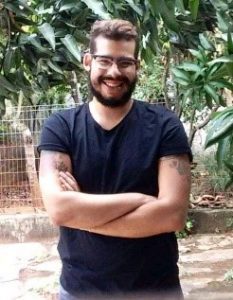
“Hi, I’m Alexandre. I worked as an English as a Foreign Language teacher in Brazil, and am currently a Portuguese teacher and the mediator of the Portuguese Club at UNL. I am also taking graduate-level courses on methodology and applied linguistics. I am very interested in second language acquisition, and gender and sexuality studies. My hobbies include ballet, studying foreign languages, and cinema.”
Meltem Ozgul
Fulbright Foreign Language Teaching Assistant from Turkey
Michigan State University
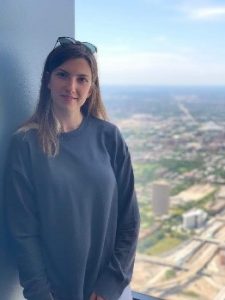
“Hi, I am Meltem. I am an English teacher at a secondary school in İstanbul. I studied English Language Teaching at Yeditepe University in İstanbul, and have worked with different levels of language learners while teaching English for four years. Last year, I got my certificate in Teaching Turkish as a Foreign Language. Currently, I am a Fulbright Foreign Language Teaching Assistant at Michigan State University. Here, I teach Turkish to college students and attend cultural events to promote Turkish culture in America.”
Gulchekhra Rakhimova
Fulbright Foreign Language Teaching Assistant from Uzbekistan
Michigan State University
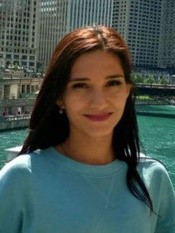
“Hello! I am Gulchekhra Rakhimova from Uzbekistan. I am a Fulbright Foreign Language Teaching Assistant in Uzbek language at Michigan State University. I have earned my bachelor’s and master’s degrees in English Linguistics and Philology at Uzbekistan State World Language University. I received my Professional Development in Teaching English as a Second Language Certificate from Glasgow Caledonian University in Scotland. As a cultural ambassador, I’ve joined the Community Volunteering International Program (CVIP), and have been doing cultural presentations and events to present my culture and my country.”
Olajide Salawu
Fulbright Foreign Language Teaching Assistant from Nigeria
Fayetteville State University
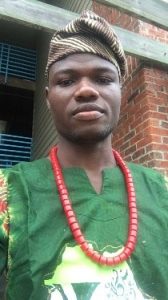
“Enle o, I am Olajide Salawu. I work as a research assistant at Obafemi Awolowo University in Nigeria, from where I also earned my bachelor’s and master’s degrees in Literary Studies. As a cultural ambassador, I am currently a Fulbright Foreign Language Teaching Assistant at Fayetteville State University, where I have held different workshops on Yoruba language and culture. Next spring, I will teach first-year students in an “Introduction to Yoruba Language” course. In my spare time, I like to watch movies and write poetry. My work can be found in Transition, Rattle, Salt Hill Journal, New Orleans Review, African Poetry Book Fund and elsewhere.”
Mariia Velichko
Fulbright Foreign Language Teaching Assistant from Russia
Michigan State University
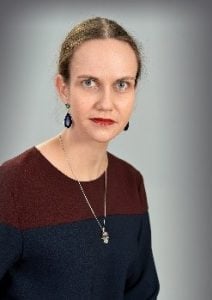
“Hello, I am Maria! I graduated from Magnitogorsk State University, where I majored in Linguistics, Translation and Interpretation, and worked as an Assistant Professor in the Department of Translation and Interpretation. My main professional interests are methods of teaching English and Russian, all kinds of translation and interpretation, and cross-cultural communication. I currently assist students in the “Russian 420” course at Michigan State University, host a Russian Club, and organize and take part in cultural outreach events to promote Russian culture in America. I am interested in fashion history, art, photography, and am always looking for things that can inspire me.”
Chiu-Li Wu
Fulbright Foreign Language Teaching Assistant – Taiwan people
University of Kentucky

“Hello, I’m Chiu-Li Wu, but most of my friends just call me Sherry! I love sharing Chinese culture, and my main professional interests are psychology, school counseling, special education, and teaching English and Chinese as a foreign language. I also like traveling and working as a volunteer in the community. I’m currently a teaching assistant of “Chinese 101” at the University of Kentucky and organize some cultural events. I enjoy helping my students experience the art of Chinese characters, Chinese woodblock painting, calligraphy, brush painting, paper cutting, pop songs, and Chinese cuisine.”


